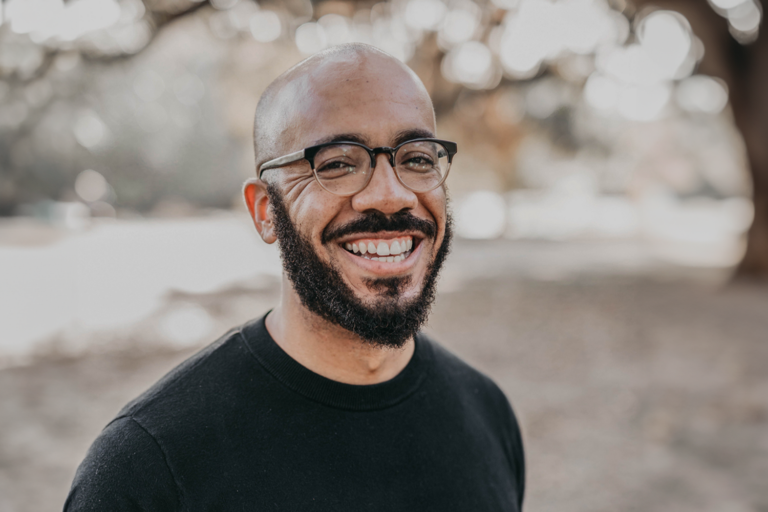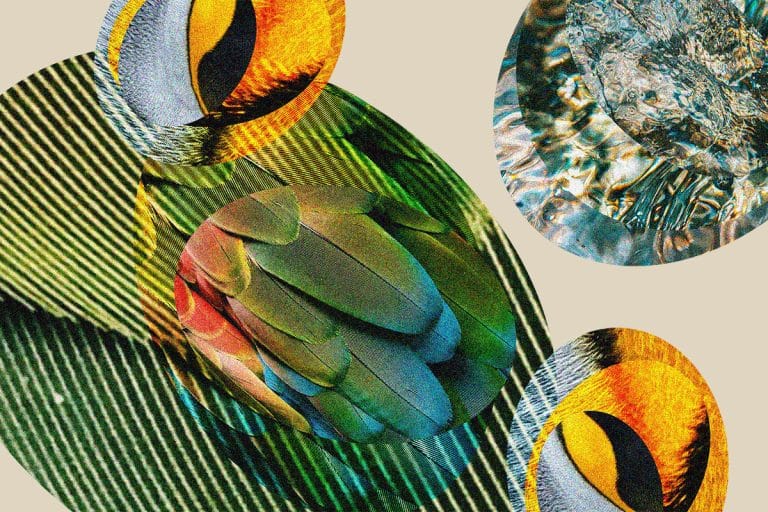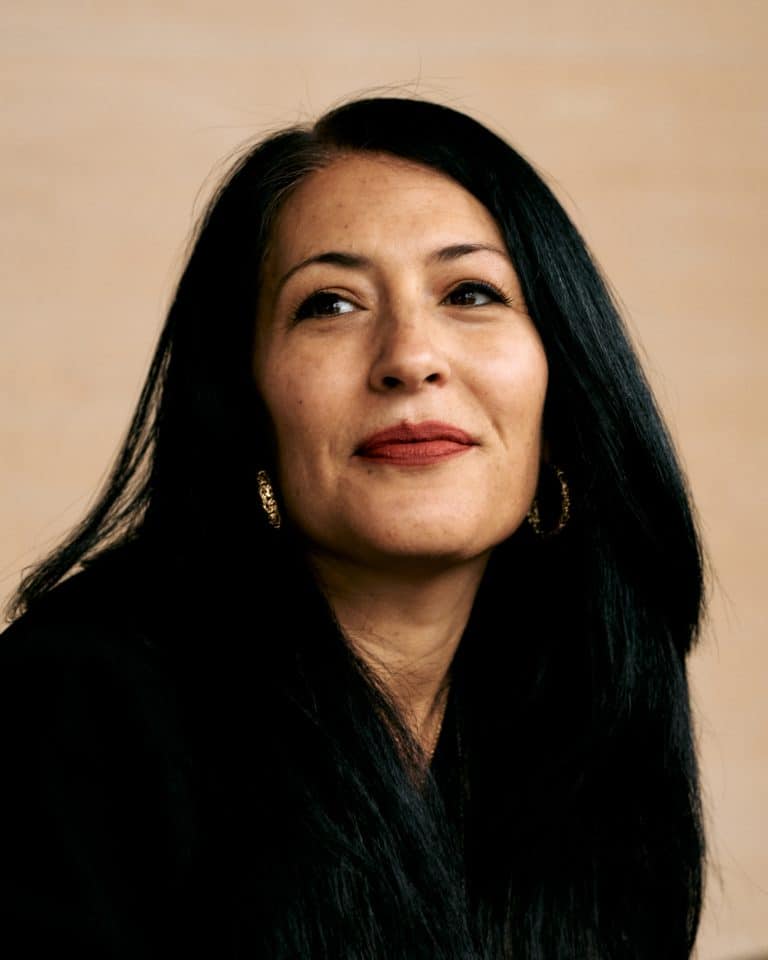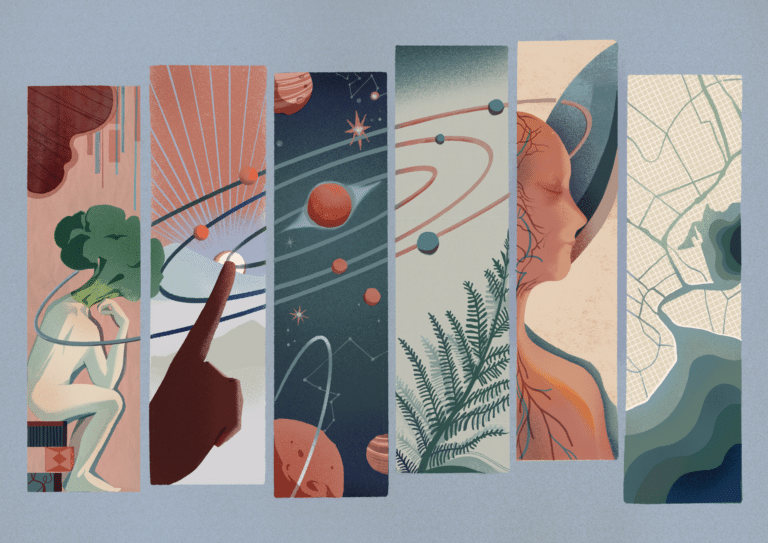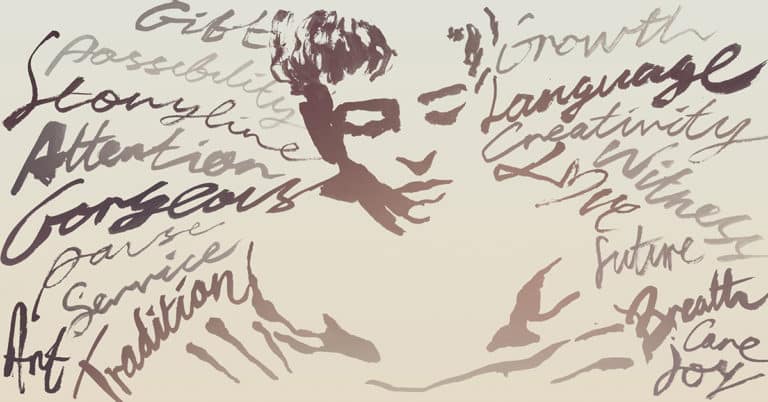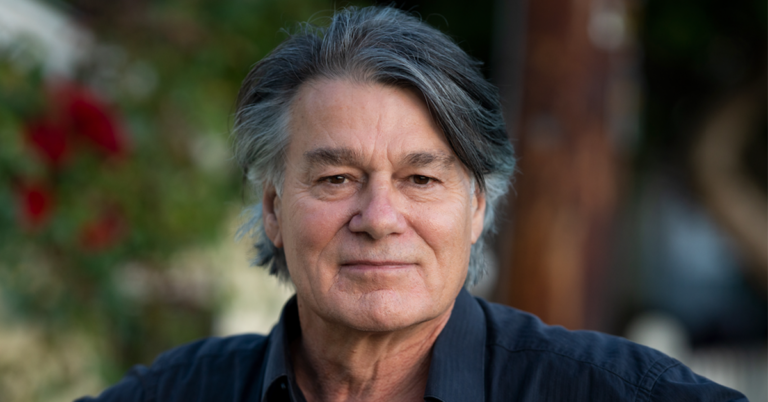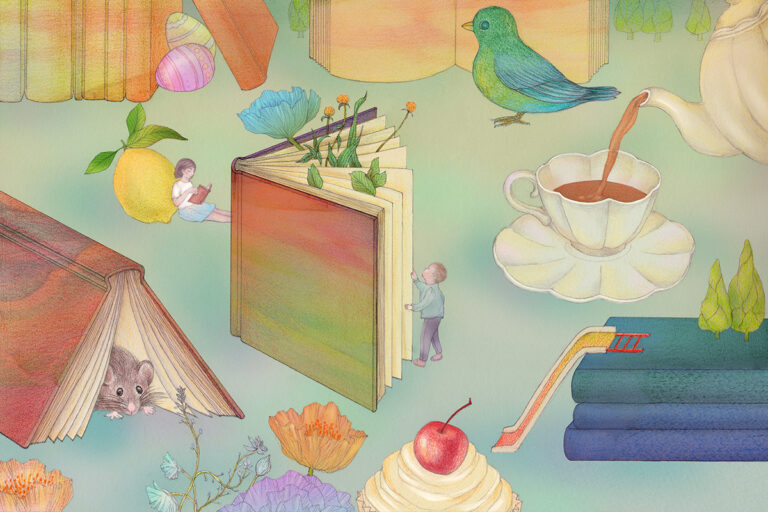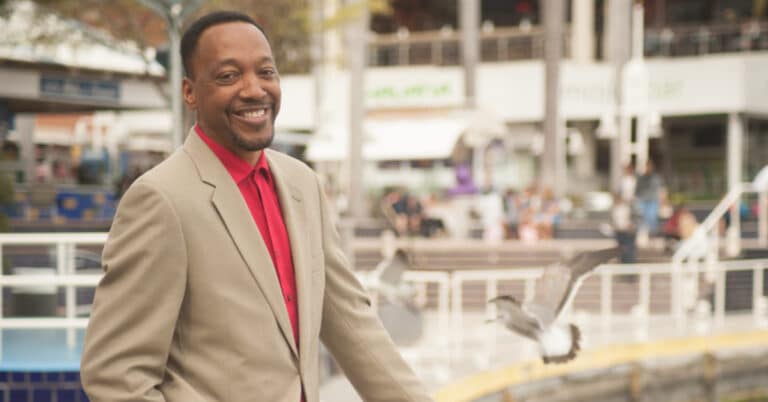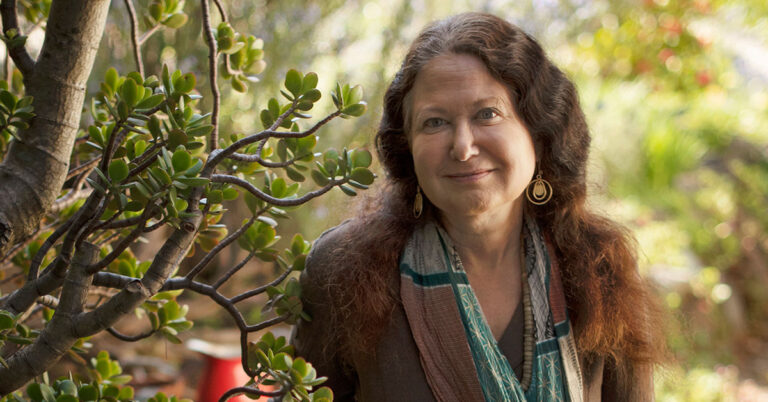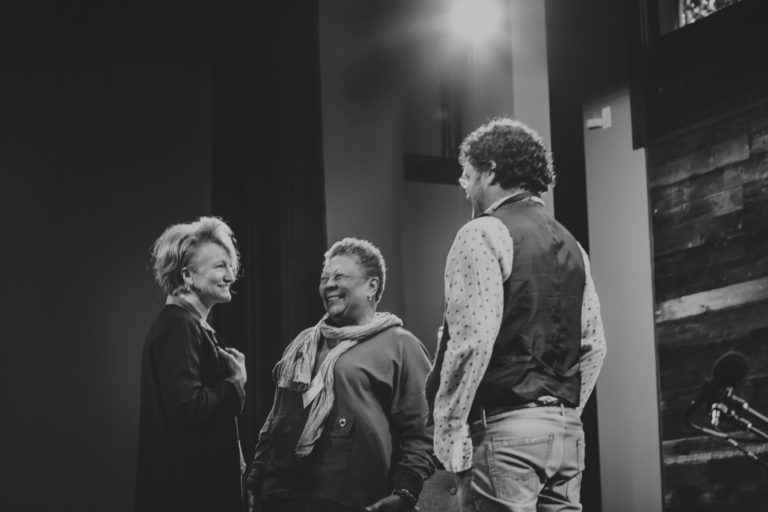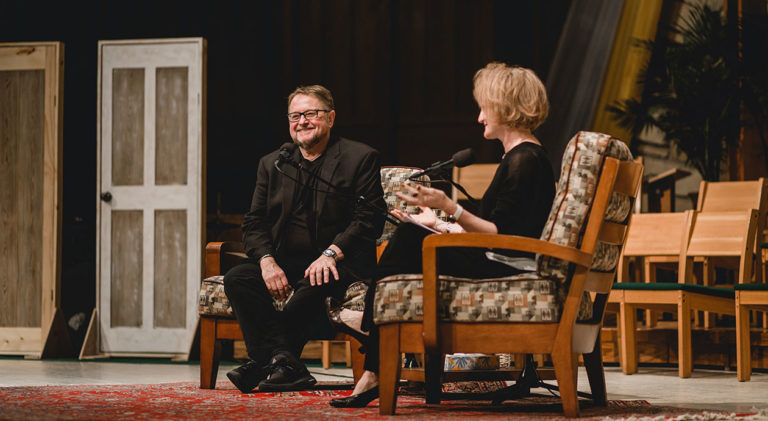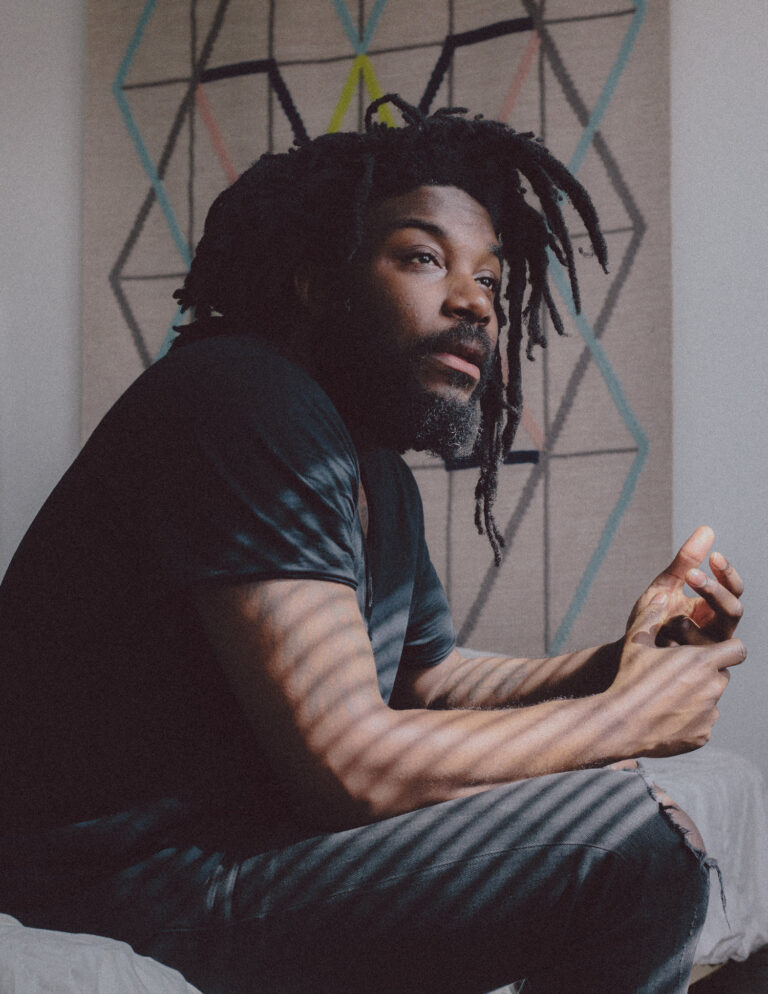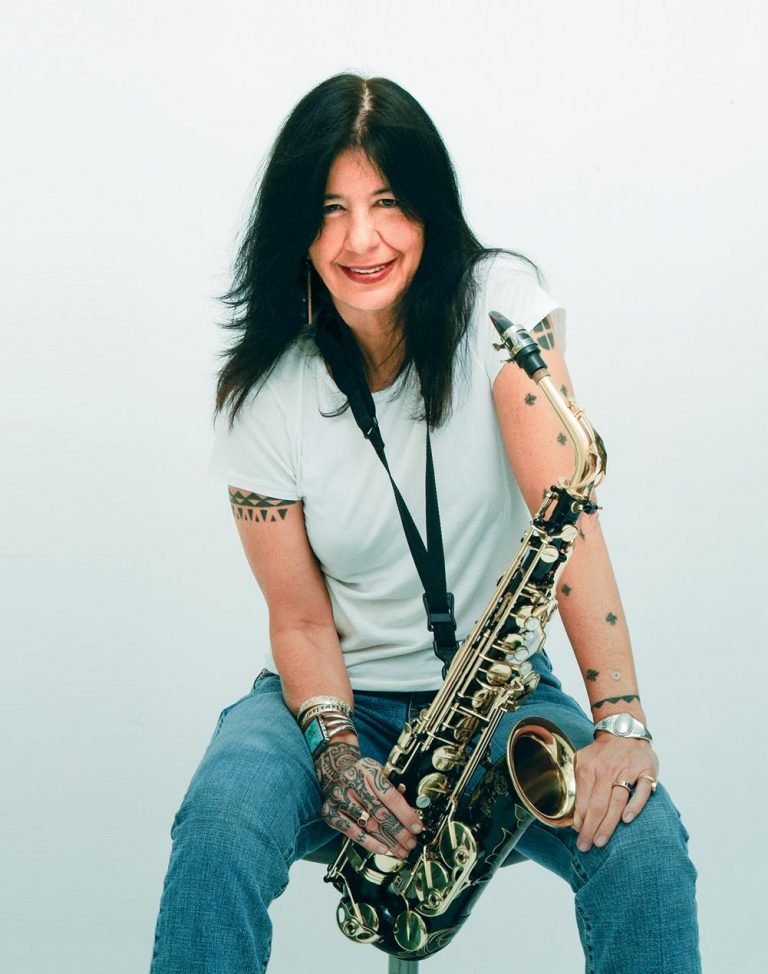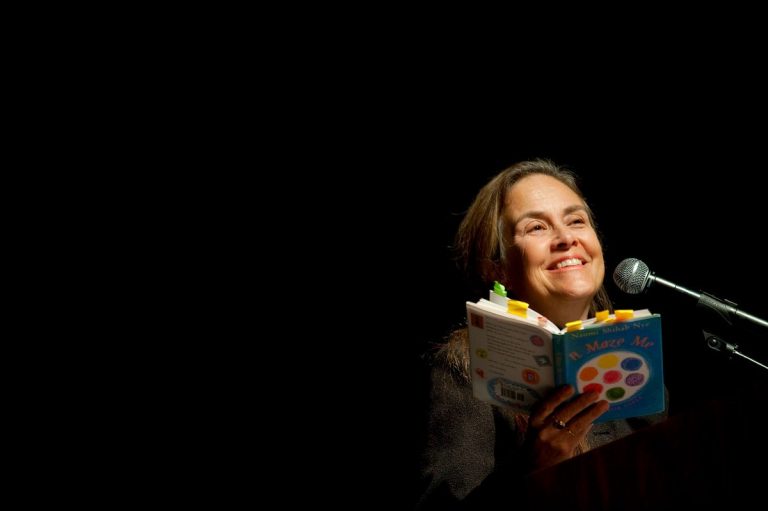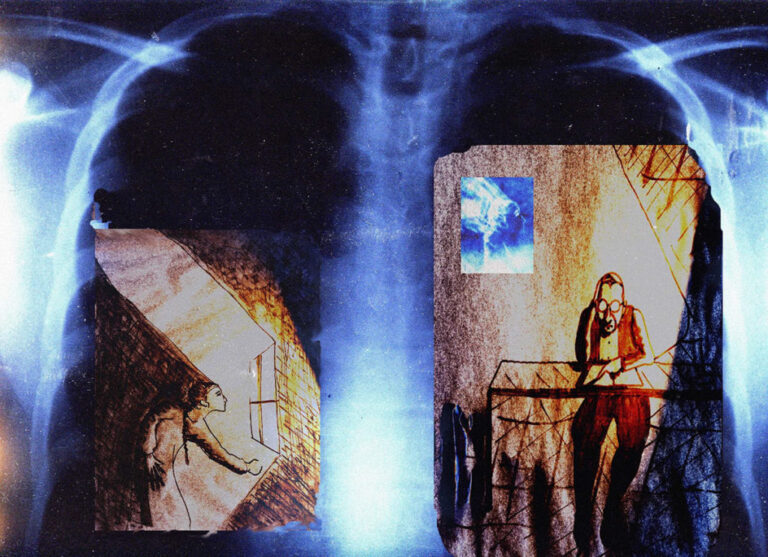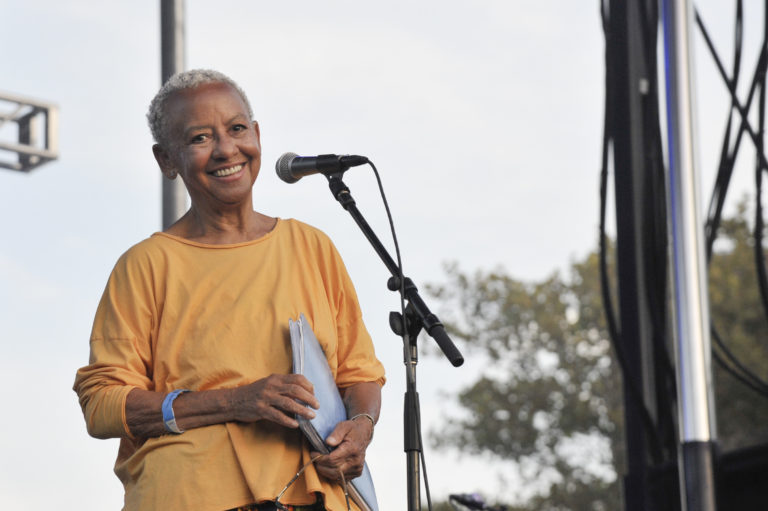We’re hungry for fresh ways to tell hard truths and redemptive stories, for language that would elevate and embolden rather than demean and alienate. Elizabeth Alexander shares her sense of what poetry works in us — and in our children — and why it may become more relevant, not less so, in hard and complicated times.
Words Make Worlds
Featured Items
Before you know kindness as the deepest thing inside / you must know sorrow as the other deepest thing.
View
- List View
- Standard View
- Grid View
35 Results
Filters
This phrase recurs throughout Clint Smith’s writing: “in the marrow of our bones.” It is an example of how words can hold encrypted wisdom — in this case, the reality that memory and emotion lodge in us physically. Words and phrases have carried this truth forward in time long before we had the science to understand it.
Clint Smith is best known for his 2021 book, How the Word Is Passed, but he is first and foremost a poet. He and Krista discuss how his various life chapters have been real-world laboratories for him to investigate the entanglement between language and the intelligence of the body — and the related entanglement between history and place. His poetic sensibility has singularly opened readers to approach a generative reckoning with American history — on whatever side of that history our ancestors stood.
Clint Smith has a way of making reckoning possible at a humanizing, softening, bodily level — in the marrow, you might say, of our bones.
You might want to take a walk with this one. It is big and full of brain food and an enlivening opening of imagination to possibilities that are emergent now: the notion of the “broad commonwealth of life” that we are “inextricably entangled with and suffused by”; the paradox that the more accurately you try to measure some things, the more unmeasurable they become; the way words we use all the time have kept our cellular belonging to the natural world alive, even as civilization forgot.
The technologist/artist James Bridle brings all of this into interplay with an intriguing, refreshing lens on our lives with technology — and with all that artificial intelligence is and might become.
You might not think of intelligence the same way again, or the truth of mythology, or the letters of the alphabet, or what it means to be human. And you will smile next time you access the place where your digital life is stored and realize what it says about us that we named it The Cloud.
An electric conversation with Ada Limón’s wisdom and her poetry — a refreshing, full-body experience of how this way with words and sound and silence teaches us about being human at all times, but especially now. With an unexpected and exuberant mix of gravity and laughter — laughter of delight, and of blessed relief — this conversation holds not only what we have traversed these last years, but how we live forward.
It unfolded at the Ted Mann Concert Hall in Minneapolis, in collaboration with Northrop at the University of Minnesota and Ada Limón’s publisher, Milkweed Editions.
February 9, 2023
Amanda Ripley
Stepping out of "the zombie dance" we're in, and into "good conflict" that is, in fact, life-giving
Amanda Ripley began her life as a journalist covering crime, disaster, and terrorism. Then in 2018, she published a brilliant essay called “Complicating the Narratives,” which she opened by confessing a professional existential crisis. We journalists, she wrote, “can summon outrage in five words or less. We value the ancient power of storytelling, and we get that good stories require conflict, characters and scene. But in the present era of tribalism, it feels like we’ve reached our collective limitations … Again and again, we have escalated the conflict and snuffed the complexity out of the conversation.”
Yet what Amanda has gone on to investigate — and so, so helpfully illuminate — is not just about journalism, or about politics. It touches almost every aspect of human life in almost every society around the world right now. We think we’re divided by issues, arguing about conflicting facts. But at a deeper level, she says, we are trapped in a pattern of distress known as “high conflict” — where the conflict itself has become the point, and it sweeps everything into its vortex.
So how to get out? What Amanda has been gathering by way of answers to that question is an extraordinary gift to us all.
“What a time to be alive,” adrienne maree brown has written. “Right now we are in a fast river together — every day there are changes that seemed unimaginable until they occurred.” adrienne maree brown and others use many words and phrases to describe what she does, and who she is: A student of complexity. A student of change and of how groups change together. A “scholar of belonging.” A “scholar of magic.” She grew up loving science fiction, and thought we’d be driving flying cars by now; and yet, has found in speculative fiction the transformative force of vision and imagination that might in fact save us. Our younger listeners have asked to hear adrienne maree brown’s voice on On Being, and here she is, as we enter our own time of evolution. This conversation shines a light on an emerging ecosystem in our world over and against the drumbeat of what is fractured and breaking: working with the complex fullness of reality, and cultivating old and new ways of seeing, to move towards a transformative wholeness of living.
Krista interviewed the wise and wonderful writer Ocean Vuong on March 8, 2020 in a joyful, crowded room full of podcasters in Brooklyn. A state of emergency had just been declared in New York around a new virus. But no one guessed that within a handful of days such an event would become unimaginable. Most stunning is how presciently, exquisitely Ocean speaks to the world we have come to inhabit— its heartbreak and its poetry, its possibilities for loss and for finding new life.
“I want to love more than death can harm. And I want to tell you this often: That despite being so human and so terrified, here, standing on this unfinished staircase to nowhere and everywhere, surrounded by the cold and starless night — we can live. And we will.”
It has ever and always been true, David Whyte reminds us, that so much of human experience is a conversation between loss and celebration. This conversational nature of reality — indeed, this drama of vitality — is something we have all been shown, willing or unwilling, in these years. Many have turned to David Whyte for his gorgeous, life-giving poetry and his wisdom at the interplay of theology, psychology, and leadership — his insistence on the power of a beautiful question and of everyday words amidst the drama of work as well as the drama of life. The notion of “frontier” — inner frontiers, outer frontiers — weaves through this hour. We surface this as a companion for the frontiers we are all on just by virtue of being alive in this time.
April 28, 2022
Pádraig Ó Tuama
“This fantastic argument of being alive”
Pádraig Ó Tuama is a friend, teacher, and colleague to the work of On Being. But before that was true, Krista took a revelatory trip to meet him at his home in Northern Ireland, a place that has known sectarianism and violent fracture and has evolved, not to perfection, yet to new life and once unimaginable repair and relationship. Our whole world screams of fracture, more now than when Krista sat with Pádraig in 2016. This conversation is a gentle, welcoming landing for pondering and befriending hard realities we are given. As the global educator Karen Murphy, another friend of On Being and of Pádraig, once said to Krista: “Let’s have the humility and the generosity to step back and learn from these places that have had the courage to look at themselves and look at where they’ve been and try to forge a new path with something that resembles ‘together’ … Right now we should be taking these stories and these examples and these places and filling our pockets and our lungs and our hearts and our minds with them and learning deeply.” And that’s what this hour with Pádraig invites.
Each and every adult is a former eight-year-old, wide open with yearning and possibility; understanding exactly how troubled the adults around you are, even if they think they are hiding it from you; almost unbearably alert to the world’s wonders and its dangers all at once. And that’s the reason you should listen to this conversation with Kate DiCamillo, even if you’ve never heard of her bounty of books beloved by teachers, parents, and former children who’ve grown up reading her. They include Because of Winn-Dixie, The Tale of Despereaux, The Magician’s Elephant, The Miraculous Journey of Edward Tulane, and Flora & Ulysses. Krista read Kate’s books with her children. Then, in the early pandemic months, feeling unmoored, she cracked them open to read by herself, inspired by a piece in the New York Times by the wonderful writer of adult novels, Ann Patchett. She wrote of making her way through the Kate DiCamillo opus as one of the most satisfying literary adventures of her life — and also incredibly calming. With honesty and wisdom, laughter and tears, Kate DiCamillo makes bearable the mysterious fact that hope and heartbreak live so close, side by side, in real life. This is her gift to her readers, and to us this hour.
February 3, 2022
Trabian Shorters
A Cognitive Skill to Magnify Humanity
Trabian Shorters is a visionary who has seen and named a task that is necessary for all healing and building, for every vision and plan, whether in a family or a world, to flourish. It’s called Asset Framing — and it works with both new understandings of the brain and an age-old understanding of the real-world power of the words we use, the stories we tell, and the way we name things and people. From everyday social media, to hallowed modes of journalistic, academic, and policy analyses, we have a habit of seeing deficits — and of defining people in need in terms of their problems. This has not only doomed some of our best efforts to failure — it leaves all of us prone to cynicism and hopelessness. What’s exciting is that what Trabian Shorters proposes is not only more effective, it is simple and straightforward to grasp. It is in and of itself dignifying and renewing. The main question you might be asking at the end of this is why, at this advanced stage of our species, it took us so long to learn to asset frame.
The esteemed writer Jane Hirshfield has been a Zen monk and a visiting artist among neuroscientists. She has said this: “It’s my nature to question, to look at the opposite side. I believe that the best writing also does this … It tells us that where there is sorrow, there will be joy; where there is joy, there will be sorrow … The acknowledgement of the fully complex scope of being is why good art thrills … Acknowledging the fullness of things,” she insists, “is our human task.” And that’s the ground Krista meanders with Jane Hirshfield in this conversation: the fullness of things — through the interplay of Zen and science, poetry and ecology — in her life and writing.
October 28, 2021
Pádraig Ó Tuama and Marilyn Nelson
“So let us pick up the stones over which we stumble, friends, and build altars”
Where to turn to find my place of standing when it feels like the world is on fire? This question surfaced in a public conversation Krista had just a couple of years ago with Pádraig Ó Tuama and Marilyn Nelson, two poet-contemplatives. Pádraig weaves together social healing, poetry, and theology. Marilyn is a lyrical excavator of stories that would rather stay hidden — yet as she coaxes them into the light, they lead to new life. This conversation is a pleasure and balm, and a reminder that the ruptures and unease and reckonings of what we call “this moment” were all before us before the pandemic. Pádraig and Marilyn’s offerings are beyond wise, and distinctly tender and powerful for this now.
The wonderful writer Luis Alberto Urrea says that a deep truth of our time is that “we miss each other.” He is singularly wise about the deep meaning and the problem of borders. The Mexican-American border, as he likes to say, ran straight through his parents’ Mexican-American marriage and divorce. His works of fiction and non-fiction confuse every dehumanizing caricature of Mexicans — and of U.S. border guards. The possibility of our time, as he lives and witnesses with his writing, is to evolve the old melting pot to the 21st-century richness of “us” — with all the mess and necessary humor required.
Jason Reynolds is the National Ambassador for Young People’s Literature of the Library of Congress — and a magnificent source of wisdom for human society as a whole. He’s driven by compassion and the clear-eyed honesty that the young both possess and demand of the rest of us. Ibram X. Kendi chose him to write the YA companion to Stamped from the Beginning. In his person, Jason Reynolds both embodies and inspires innate human powers of fortitude and imagination. Hear him on “breathlaughter”; the libraries in all of our heads; and a stunning working definition of anti-racism: “simply the muscle that says humans are human… I love you, because you remind me more of myself than not.”
“Though we have instructions and a map buried in our hearts when we enter this world,” the extraordinary Joy Harjo has written, “nothing quite prepares us for the abrupt shift to the breathing realm.” She is a saxophone player and performer, a visual artist, a member of the Muscogee Creek Nation, and the 23rd Poet Laureate of the United States. She opens up with Krista about her life, dreaming as a way of relating to time and place, and the story matrix that connects us all.
It’s pretty intriguing to follow poet Naomi Shihab Nye’s idea that most of us actually “think in poems” whether we know it or not. Rarely, as she points out, do you hear anyone say they feel worse after writing things down. That, she says, can be a tool to survive in hard times like these, to anchor our days and to get into a conversation and community with all of the selves that live on in each of us at any given moment — “your child self, your older self, your confused self, your self-that-makes-a-lot-of-mistakes.” We also hear her read her beloved poem “Kindness” and tell us the story behind it.
There is a question rolling around even in the most secular of corners: What do religious people and traditions have to teach as we do the work ahead of repairing, renewing, and remaking our societies, our life together? Krista’s conversation this week with Rabbi Ariel Burger, a student of the late, extraordinary Elie Wiesel, delves into theological and mystical depths that are so much richer and more creative than is often imagined even when that question is raised.
January 14, 2021
Nikki Giovanni
‘We Go Forward With a Sanity and a Love’
It feels good and right this week to sit with the beloved writer Nikki Giovanni’s signature mix of high seriousness, sweeping perspective, and insistent pleasure. In the 1960s, she was a poet of the Black Arts Movement that nourished civil rights. She’s also a professor at Virginia Tech, where she brought beauty and courage after the 2007 shooting there. And she’s an adored voice to a new generation — an enthusiastic elder to us all — at home in her body and in the world of her lifetime even while she sees and delights in the beyond of it.
The Pause
Join our constellation of listening and living.
The Pause is our seasonal Saturday morning ritual of a newsletter. Replenishment and invigoration in your inbox. Wisdom to take into your week. And when you sign up, you’ll receive ongoing, advance invitations and news on all things On Being.
Search results for “”
View
- List View
- Standard View
- Grid View
Filters

